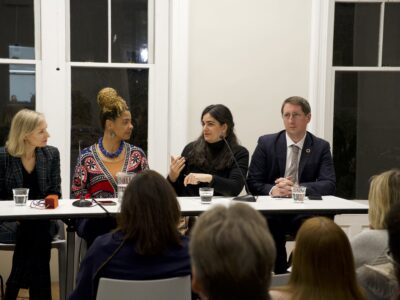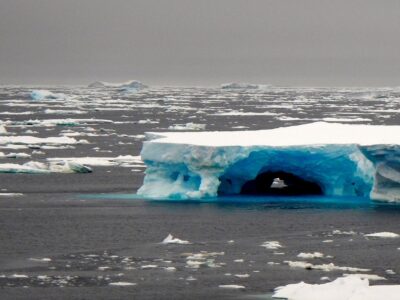 Columbia University has established its first center focused on bringing together the scientists, engineers, public health experts, foreign policy specialists and others who are working on the pressing challenges of climate change. The Columbia Climate Center, part of the Earth Institute but encompassing other parts of the University, is an outgrowth of Columbia’s leadership in earth and environmental sciences, said its director, Peter Schlosser, Vinton Professor of Earth and Environmental Engineering in The Fu Foundation School of Engineering and Applied Science and a professor in the department of earth and environmental sciences.
Columbia University has established its first center focused on bringing together the scientists, engineers, public health experts, foreign policy specialists and others who are working on the pressing challenges of climate change. The Columbia Climate Center, part of the Earth Institute but encompassing other parts of the University, is an outgrowth of Columbia’s leadership in earth and environmental sciences, said its director, Peter Schlosser, Vinton Professor of Earth and Environmental Engineering in The Fu Foundation School of Engineering and Applied Science and a professor in the department of earth and environmental sciences.
“Climate research has always been a strong part of Columbia and can be traced all the way back to the early work of the Lamont-Doherty Earth Observatory,” said Professor Schlosser. “The Columbia Climate Center builds on these contributions to move toward a solution-oriented approach to a problem that is so multidimensional.”
The center’s goals are to advance scientific knowledge about climate change; analyze policy; and put forward solutions to real-world problems. A key challenge, and one familiar to academia, will be getting out the message, both to educate the public and influence policymakers. On Jan. 31, the center hosted a discussion on climate change, showcasing the interdisciplinary expertise at Columbia as part of Focus the Nation, a nationwide day to raise the profile of climate change in the United States.
“We aim to improve the pathways of communication so that the results of our research reach both decision makers and society at large,” said Mary-Elena Carr, the center’s associate director and a biological oceanographer who comes to Columbia from NASA’s Jet Propulsion Laboratory.
Both Schlosser and Carr emphasize the interdisciplinary nature of the center and its mission; they note that its success depends on close collaboration among experts from different disciplines, research centers and programs across the University. “None of the existing climate-related centers at Columbia can address the entire spectrum of climate impacts, yet each center plays a key role,” Schlosser said.
By the end of this year, Schlosser and Carr hope to make the center the hub for climate-related science at Columbia. Five years from now, Schlosser said, “we hope to have established projects in which we have channeled innovative fundamental research into specific strategies ready for implementation.”
–Story by Clare Oh



